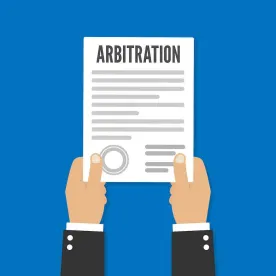On December 10, 2021, the U.S. Supreme Court granted certiorari in two cases to determine whether district courts can compel discovery proceedings in private foreign arbitrations. The two consolidated cases are ZF Automotive US, Inc., et al. v. Luxshare, Ltd. and AlixPartners, LLP, et al. v. The Fund for Protection of Investors’ Rights in Foreign States.
The Supreme Court had previously taken up this issue on March 22, 2021, when it granted certiorari in Servotronics, Inc. v. Rolls-Royce, PLC, cert. granted, No. 20-794, 141 S.Ct. 1684; dismissed under Rule 42 on September 29, 2021, but Servotronics withdrew its petition prior to hearing inasmuch as the arbitration hearing had already concluded. Neil Popović and Shin Hahn previously wrote about the Supreme Court’s decision to grant certiorari in Servotronics here.
In the current cases, the Supreme Court will again attempt to resolve a circuit split over whether 28 U.S.C. § 1782(a), which permits district courts to order discovery for use in “a proceeding in a foreign or international tribunal,” applies in the context of private arbitrations occurring outside the United States. Whereas the Fourth and Sixth Circuits have held that Section 1782 applies in such contexts, the Second, Fifth, and Seventh Circuits have held it does not.
In ZF Automotive US, Inc., et al. v. Luxshare, Ltd., a Michigan-based automotive parts company challenged a Michigan district court’s ability to issue a discovery order in connection with the company’s private commercial arbitration taking place in Germany against a Hong Kong electronics company. Because the automotive parts company expected that the Sixth Circuit’s binding precedent in Abdul Latif Jameel Transportation Co. v. FedEx Corp. (In re Application to Obtain Discovery for Use in Foreign Proceedings), 939 F.3d 710 (6th Cir. 2019) would require the finding that Section 1782 applies to its commercial arbitration, the company sought Supreme Court review before the Sixth Circuit could issue a ruling. The question in this case concerns whether a “foreign or international tribunal” under Section 1782 means only governmental and intergovernmental adjudicative bodies or whether it also encompasses private arbitration proceedings lacking any direct government oversight.
AlixPartners, LLP, et al. v. The Fund for Protection of Investors’ Rights in Foreign States asks a slightly different question—should foreign investment treaty arbitrations be treated differently than foreign commercial arbitrations with respect to Section 1782? In this case, a Russian company seeks to compel discovery from a New York-based consulting firm in an investment arbitration brought by the Russian company against Lithuania. While the Second Circuit considers private foreign commercial arbitrations outside the scope of Section 1782, it treats investment arbitrations differently because the latter involve at least one state or state-related litigant and take place in arbitral tribunals established by a treaty. Under Second Circuit law, that distinction means that a foreign investment treaty arbitration qualifies as a “foreign or international tribunal” subject to Section 1782, whereas a commercial arbitration with private parties on both sides does not qualify. In re Fund for Prot. of Inv’r Rights in Foreign States v. AlixPartners, LLP, 5 F.4th 216, 228 (2d Cir. 2021).
The United States government, in contrast, takes the position that both types of arbitrations involve the same type of tribunal—comprising private arbitrators unconnected to any government—and thus, courts should not distinguish between commercial and investment treaty arbitrations. Servotronics, Brief for the United States as Amicus Curiae Supporting Respondents at 15-16.
If the Supreme Court finds that Section 1782 does not apply to commercial or investment treaty arbitrations, then litigants will be precluded from using United States district courts to compel discovery from any party or witness located in the United States.
However, if the Supreme Court instead finds that Section 1782 encompasses both commercial and investment treaty arbitrations, then litigants in such arbitrations could turn to the district court in which a party or witness resides to compel discovery for use in foreign arbitrations. When applicable, Section 1782 may enable parties to engage in far more extensive (and expensive) discovery procedures than typically allowed in international arbitrations. It may also lead contracting parties to specifically limit discovery in their arbitration agreements.
Alternatively, the Supreme Court might distinguish between commercial and investment treaty arbitrations, and find that only the latter qualify as international tribunals subject to Section 1782. In that event, then litigants in investment treaty arbitrations could invoke Section 1782 to request that an applicable district court issue discovery orders. Notably, Section 1782 is always discretionary, and under existing Supreme Court precedent, using the provision to circumvent limitations on gathering evidence may weigh against approval of a discovery request. Intel Corp. v. Advanced Micro Devices, Inc., 542 U.S. 241 (2004).




 />i
/>i

